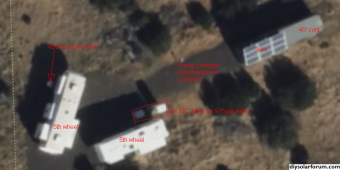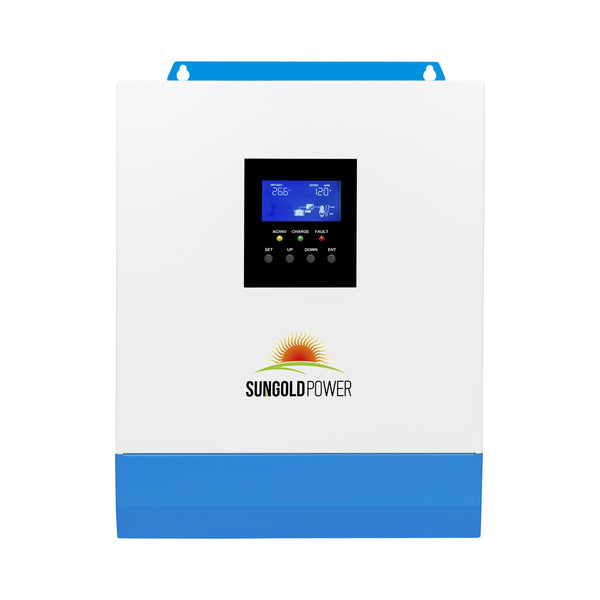Mcstiggens
New Member
Hello All,
I am just getting started here on the forum and with learning about upgrading my solar system. I have had some experience with hooking up a super simple system in my 4wheel Popup truck camper as well as building a DIY solar generator on wheels (from welding to wiring), all from scratch.
That said, I am going to sound like a real noob here because the scope of this project will prove to be much more advanced that what I have dealt with prior.
Here are the specs that I have to work with:
34' Grand Design Imagine 2910BH travel trailer with a 50 amp system which is "solar ready" and comes with one 165w panel and 25amp controller.
Here are my needs:
I plan to boondock and be 100% self reliant on power, using solar/battery/inverter to run my rig just as I would with shore power, preferably with little to no limitations. (Not necessarily concerned with running AC at this point though)
I will also be prepared to supplement with generator when necessary.
I mostly intend to run the furnace and 12V fridge on a regular basis as well as lights, peripherals etc.
I can fit and am planning for approx. 1650 watts worth of solar on the roof. I will not plan to achieve this all at first but it's the goal.
I plan to have 2 to 3 200 Ah LifePO4 batteries, totaling 600 Ah battery bank. (Preferably or most likely a 24V/48 system? That is where I start to get stumped.)
Here are my limitations:
Well, $$$ and time are the imitations.
I am having to move from my house and will be boondocking at my equipment yard.
So, I need to quickly set up a solar system with what I already have and what I can afford to purchase.
I don't have the time to save up for the fancy Victron MPPT controller/charger etc. that I would prefer to use and plan to purchase when I can afford it down the road.
Here is what I have purchased or already have on hand so far for the upgrade:
1-Renogy 3000W Pure sign wave inverter
2-200AH 12V LifePO4 batteries
8-185W used Solar panels totaling 1480 watts -10% give or take, since they are a few years old....lets say 1350 Watts of solar.
(these panels were purchased used and are very large so I don't plan on mounting these to the roof of the RV. I will be purchasing something more modern and lightweight/low profile or flexible down the road for the roof install. These will be mounted on top of a shipping container where I will park my trailer and tap into them until I can be totally self sufficient and off grid with the trailer mounted panels.
Here is where I need your input:
I should add here that even though I mentioned running a 24/48V system above, due to the aforementioned budget limitations, I am going to start with 12V since it seems a bit simpler and cheaper.
Also, I have read so, so ,so much on the topic that my head is about to explode and I have so much more to deal with at the same time, such as moving out of my house, shop, setting up my off-grid equipment yard/boondock spot etc.
I also do not retain knowledge very well anymore. (getting slow in my old age).
So please forgive me for bringing up some topics that are sure to have been answered many times before. I just have very little time and bandwidth to deal with any more research.
I have seen more complicate systems with buss bar, shunt and other more advanced items. I need to keep it simple for the sake of time and budget.
It appears the first thing I will need to do is figure out what solar controller to purchase and install.
I need help figuring out where to go from here. I will assume a 50amp controller would be correct for this application. Any suggestions on that?
I suppose I will need a transfer switch as well.
The trailer is "inverter ready" so all I need to do is tap into the wired loop running from the breaker box to install that.
The factory wiring that goes to roof for the solar panels is 10 GA. Is that sufficient for my needs?
Given all I have stated above, what do you think is the most basic and cost effective way for me to set this up....just to get it running. I can upgrade as needed down the road.
I'm sure I could rattle off more details but this is enough to get the conversation started.
I certainly appreciate you for reading this far and I look forward to your tips and suggestions. There will be lots more I'll need to ask about down the road here.
Thanks,
Lane O
I am just getting started here on the forum and with learning about upgrading my solar system. I have had some experience with hooking up a super simple system in my 4wheel Popup truck camper as well as building a DIY solar generator on wheels (from welding to wiring), all from scratch.
That said, I am going to sound like a real noob here because the scope of this project will prove to be much more advanced that what I have dealt with prior.
Here are the specs that I have to work with:
34' Grand Design Imagine 2910BH travel trailer with a 50 amp system which is "solar ready" and comes with one 165w panel and 25amp controller.
Here are my needs:
I plan to boondock and be 100% self reliant on power, using solar/battery/inverter to run my rig just as I would with shore power, preferably with little to no limitations. (Not necessarily concerned with running AC at this point though)
I will also be prepared to supplement with generator when necessary.
I mostly intend to run the furnace and 12V fridge on a regular basis as well as lights, peripherals etc.
I can fit and am planning for approx. 1650 watts worth of solar on the roof. I will not plan to achieve this all at first but it's the goal.
I plan to have 2 to 3 200 Ah LifePO4 batteries, totaling 600 Ah battery bank. (Preferably or most likely a 24V/48 system? That is where I start to get stumped.)
Here are my limitations:
Well, $$$ and time are the imitations.
I am having to move from my house and will be boondocking at my equipment yard.
So, I need to quickly set up a solar system with what I already have and what I can afford to purchase.
I don't have the time to save up for the fancy Victron MPPT controller/charger etc. that I would prefer to use and plan to purchase when I can afford it down the road.
Here is what I have purchased or already have on hand so far for the upgrade:
1-Renogy 3000W Pure sign wave inverter
2-200AH 12V LifePO4 batteries
8-185W used Solar panels totaling 1480 watts -10% give or take, since they are a few years old....lets say 1350 Watts of solar.
(these panels were purchased used and are very large so I don't plan on mounting these to the roof of the RV. I will be purchasing something more modern and lightweight/low profile or flexible down the road for the roof install. These will be mounted on top of a shipping container where I will park my trailer and tap into them until I can be totally self sufficient and off grid with the trailer mounted panels.
Here is where I need your input:
I should add here that even though I mentioned running a 24/48V system above, due to the aforementioned budget limitations, I am going to start with 12V since it seems a bit simpler and cheaper.
Also, I have read so, so ,so much on the topic that my head is about to explode and I have so much more to deal with at the same time, such as moving out of my house, shop, setting up my off-grid equipment yard/boondock spot etc.
I also do not retain knowledge very well anymore. (getting slow in my old age).
So please forgive me for bringing up some topics that are sure to have been answered many times before. I just have very little time and bandwidth to deal with any more research.
I have seen more complicate systems with buss bar, shunt and other more advanced items. I need to keep it simple for the sake of time and budget.
It appears the first thing I will need to do is figure out what solar controller to purchase and install.
I need help figuring out where to go from here. I will assume a 50amp controller would be correct for this application. Any suggestions on that?
I suppose I will need a transfer switch as well.
The trailer is "inverter ready" so all I need to do is tap into the wired loop running from the breaker box to install that.
The factory wiring that goes to roof for the solar panels is 10 GA. Is that sufficient for my needs?
Given all I have stated above, what do you think is the most basic and cost effective way for me to set this up....just to get it running. I can upgrade as needed down the road.
I'm sure I could rattle off more details but this is enough to get the conversation started.
I certainly appreciate you for reading this far and I look forward to your tips and suggestions. There will be lots more I'll need to ask about down the road here.
Thanks,
Lane O
Last edited:








